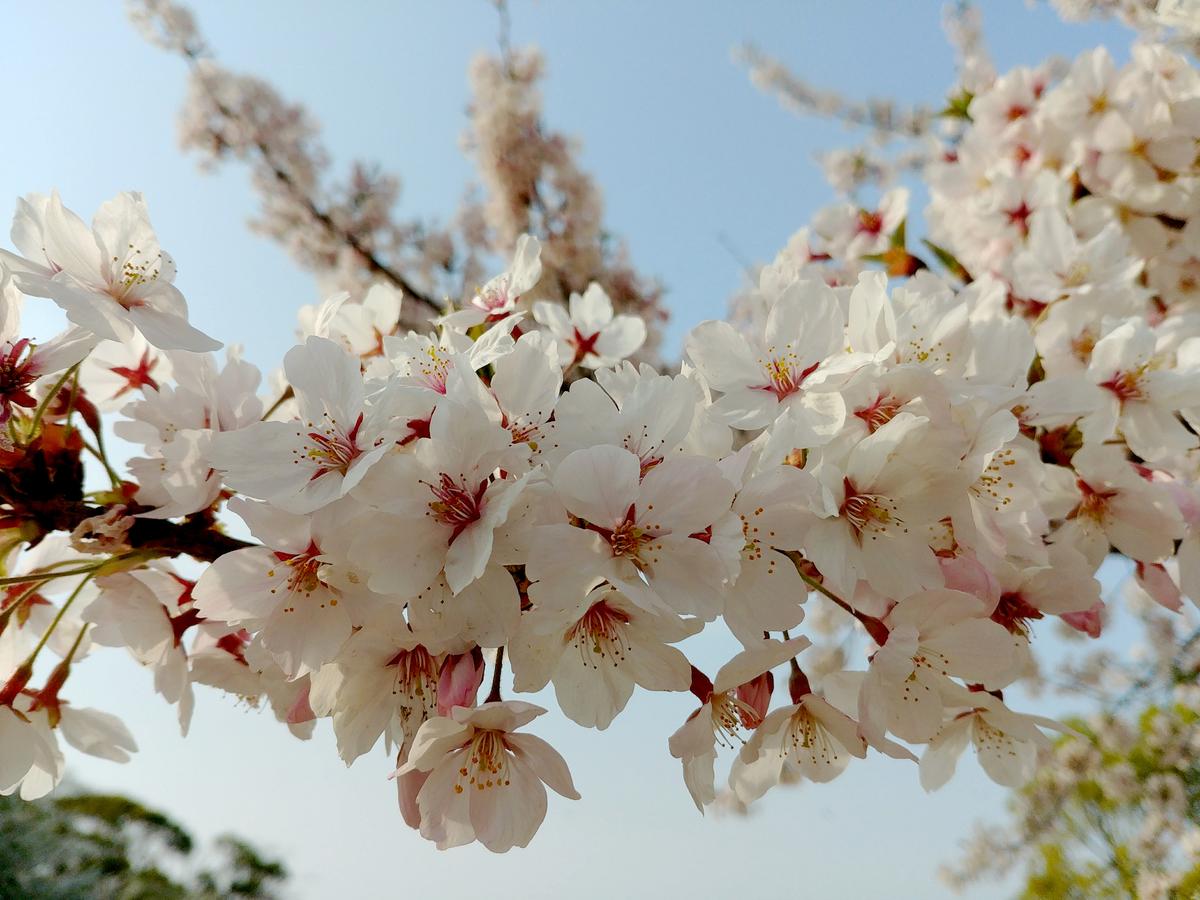サクラ
Tags
- popular
- Words commonly used in modern Japanese #popular
- search-only kanji form
- search-only kanji form #sK
- JLPT N3
- JLPT N3 words: Intermediate Level #jlpt3
- noun
- noun (common) (futsuumeishi) #n
- noun (generic)
- All kinds of Japanese nouns #noun
- usually written using kana alone
- Words and expressions which are always written using hiragana or katakana. #uk
- colloquial
- Words not used in formal speech, writing or paralinguistics. #col
Reading
- サクラサクラsakura
Meaning
- nouncherry tree, cherry blossom
- usually written using kana alonenounfake buyer, paid audience, shill, seat fillerusu. サクラ; also written as 偽客
- usually written using kana alonenounhired applauder
- colloquialnounhorse meat
- see also:桜肉
- kersenboom, {Belg.N.} kerselaar, (Japanse) kers, sierkers, {Lat.} Prunus spp., {gew.} bloemkers
- kersenhout
- kersenbloesem
- lichtroze {= de kleur █}
- paardenvlees
- lokker, lokvogel, stoepier, {theat.} claqueur, {theat., verzameln.} claque, {m.b.t. veiling} aanjager
- fleurs de cerisier
- leurre, faux acheteur, compère
- applaudisseur payé
- viande de cheval
- Claqueur, Claque
- Scheinkäufer, Lockvogel
- Kirschbaum, Kirsche, Prunus
- Kirschblüte
- Kirschfarbe, Blassrosa, Hellrot
- Pferdefleisch
- csalétek
- 1) сакура, вишня (дерево, гл. обр. те виды, которые отличаются обильным цветением, но не плодоносят); (ср.) べにやまざくら, しろやまざくら, やまざくら, やまとざくら, 2) (см.) さくらいろ, 3) (см.) さくらにく, сакура
- česnja, češnjevo drevo, češnjev cvet
- cerezo
- señuelo, cómplice
- aplaudiente escondido
- körsbärsblomma, körsbärsträd
Sakura 桜
 Image Sakura 桜: Author: JapanDict, licensed under a Creative Commons Attribution-ShareAlike 4.0 International License.
Image Sakura 桜: Author: JapanDict, licensed under a Creative Commons Attribution-ShareAlike 4.0 International License.Japanese national symbols
List of Japanese symbols representing what's unique about the country.
Spring - 春
Spring related Japanese words
Collocations and expressions using サクラ
AdvertisementExtended information
- JMDict ID: 1593710
- JMdictDB entry
- Short URL: https://jpdct.com/GFFu
- Appears in the "wordfreq" file compiled by Alexandre Girardi (see wordfreq.README) on the first 12.000 words.
- Appears in the "Ichimango goi bunruishuu", Senmon Kyouiku Publishing, Tokyo, 1998.
- Frequency-of-use ranking in the wordfreq file: 4
Example sentences
- Japanese sentence
- 満開をチョイ過ぎた感はありましたが、それでも、美しい桜を満喫してきました。Loading...
- Sentence analysis
- Meaning
- They seem a little past their peak, but even so we enjoyed the beautiful cherry blossoms.Même en sentant qu'ils avaient très légèrement dépassé l'apogée de leur floraison, nous avons pu pleinement apprécier ces magnifiques cerisiers.Kissé túl voltak a virágzáson, ennek ellenére nem szenvedtünk hiányt a gyönyörű cseresznyevirágokból.





